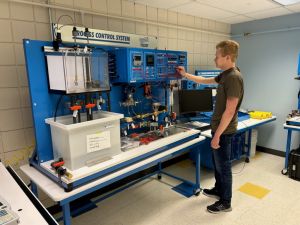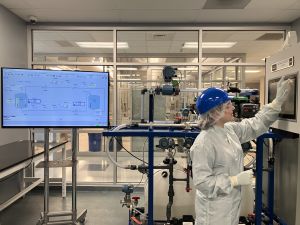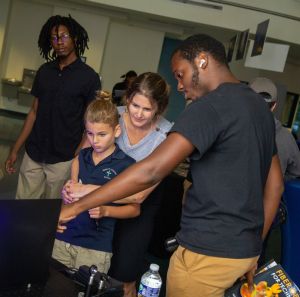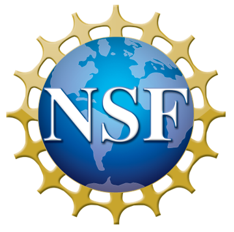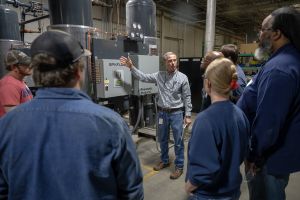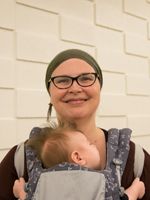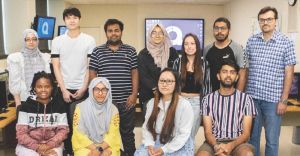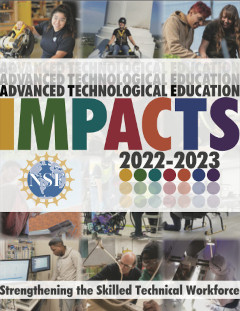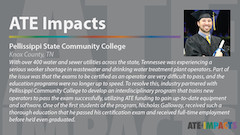As he develops three quantum technology courses—that he thinks will be the first formal curriculum for quantum workforce technicians—Mo Hasanovic is recruiting students and encouraging community colleges to “jump on the train much earlier” than they have previously with emerging technologies and add quantum technology programs as soon as possible.
Hasanovic is associate professor and chair of the Electrical Engineering Technology Department at Indian River State College (Florida) and principal investigator of EdQuantum, an ATE project.
The general public may not be aware of it, but advances in quantum computing, quantum networking, and quantum sensing have the potential for enormous, disruptive effects that are making attainment of quantum supremacy a strategic priority for the U.S. government.
“It’s almost like a patriotic duty to move the technology forward as an entire nation so we can continue to be a global leader in democracy in these technologies,” Hasanovic said.
The first quantum revolution began in the twentieth century and led to the development of lasers, LEDs, MRIs, solar cells, and Lidar. Quantum Revolution 2.0, as Hasanovic refers to the commercialization of quantum research-enabled products, is expected in the next five to 10 years. There are predictions that the immense processing power of new quantum computers could put all passwords at risk while advances in quantum networking could make internet communications 100% secure.
Hasanovic said there are quantum sensing devices under development that will be so sensitive they can measure gravitational force underground, which will remotely differentiate between different minerals.
“The quantum is important,” he says emphatically.


 Subscribe
Subscribe


